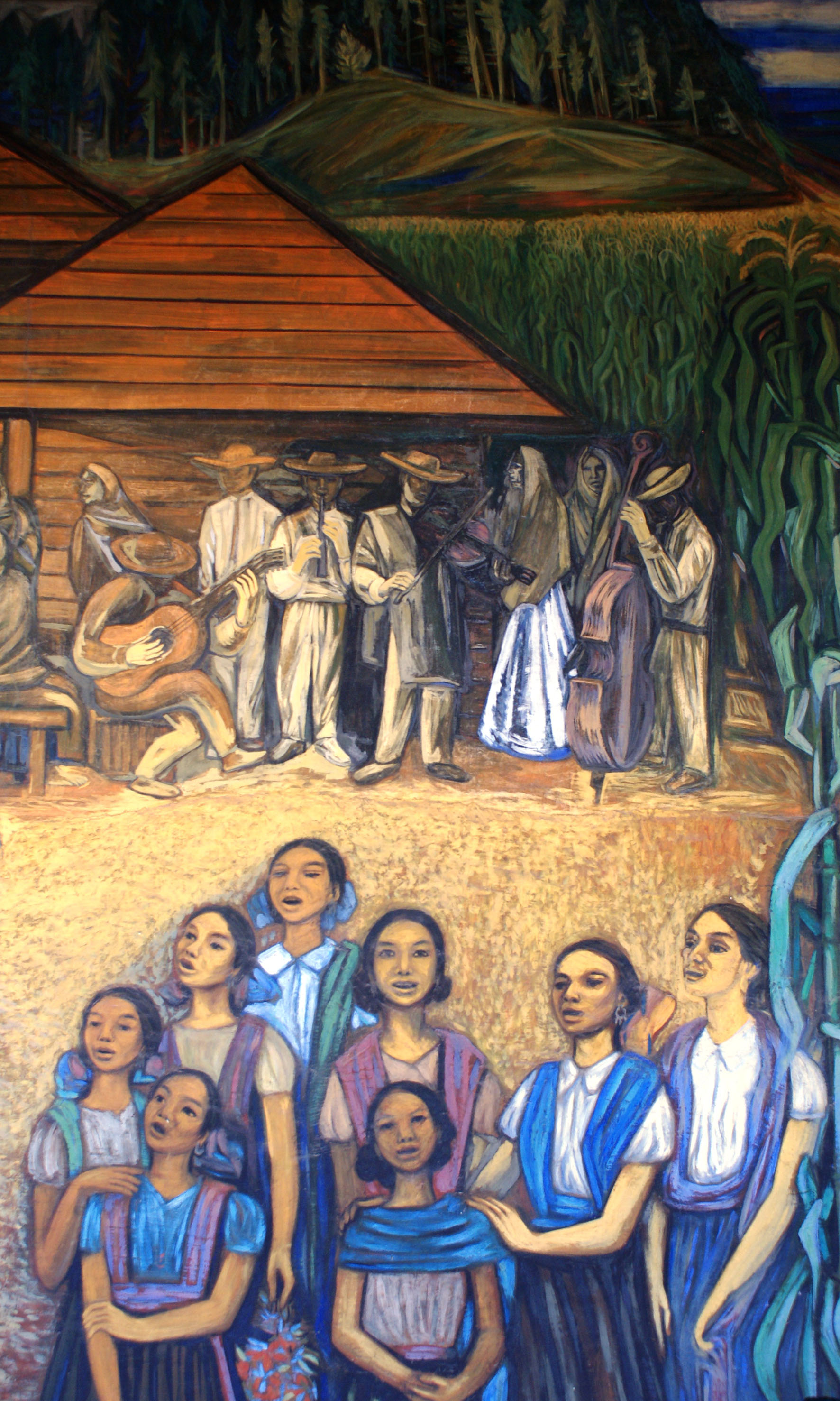 |
| People and Landscape of Michoacan by Alfredo Zalce |
Early Dream
I walk by a dim street in Latin America, seems very much like a bus stop sidewalk eatery in Mexico or a humble restaurant in the outskirts of a Peruvian city. Immediately outside the restaurant, a man is holding a relatively sophisticated looking, tall type jar. The jar reads something about Ayahuasca. I pass by the first time, however the second time, I drop a few coins in and receive a small bit of the Ayahuasca mix that this man is selling. I sit down in the restaurant, I feel as if I am with loved ones, good friends or my wife. We sit and I start to feel a bit woozy. Suddenly, I see a classical/jazz ensemble performing their music in a relatively nice hall setting immediately before me. I am making a mental commentary on the music. The effects seem to have subsided, as expected, I tell myself I am proved correctly that the Ayahuasca that was sold had no real effect.
Late Dream
I am at a seaside café on the Mediterranean. In some ways it reminds me of a small restaurant in Malibu, California that I went to with my brother. I sit down with an unidentified young woman and a man who resembles my old friend and colleague in Egypt, a Sudanese man. He also resembles an interviewee in Sudan who was asked about his return experiences to Sudan as a returning migrant from Egypt. The man begins speaking with me in Arabic about his father, his homeland, and a story regarding his village. The story is very interesting and has many features of local history and identity related to the man and his originating village. He is telling a story about fishing. I ask him to confirm with me that he is from Algeria, he nods. Just as I begin to translate the story for the other individual present, she begins talking over both of us to proclaim her ideas about racial barriers. The man seems disinterested, and I am somewhat bereft, though only wish to convey the man’s story and practice my translation efforts in relaying a beautiful, genuine story of home in the midst of migration and conflict.
Monday Oct, 3 2011
Early: vision and money refuse to work with each other.
ReplyDeleteLate: people don't want to hear songs of distant homes, because all homes are one, something irretrievably lost.